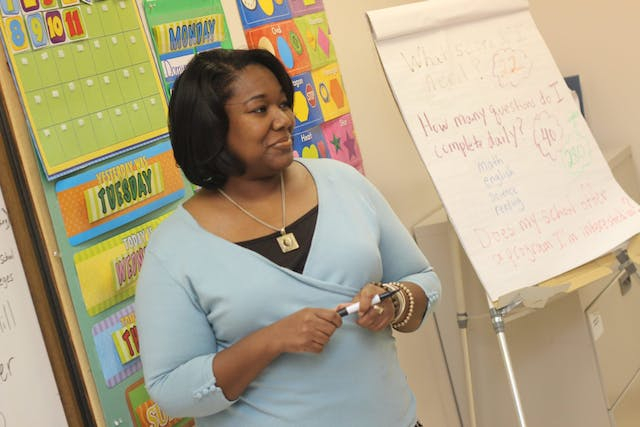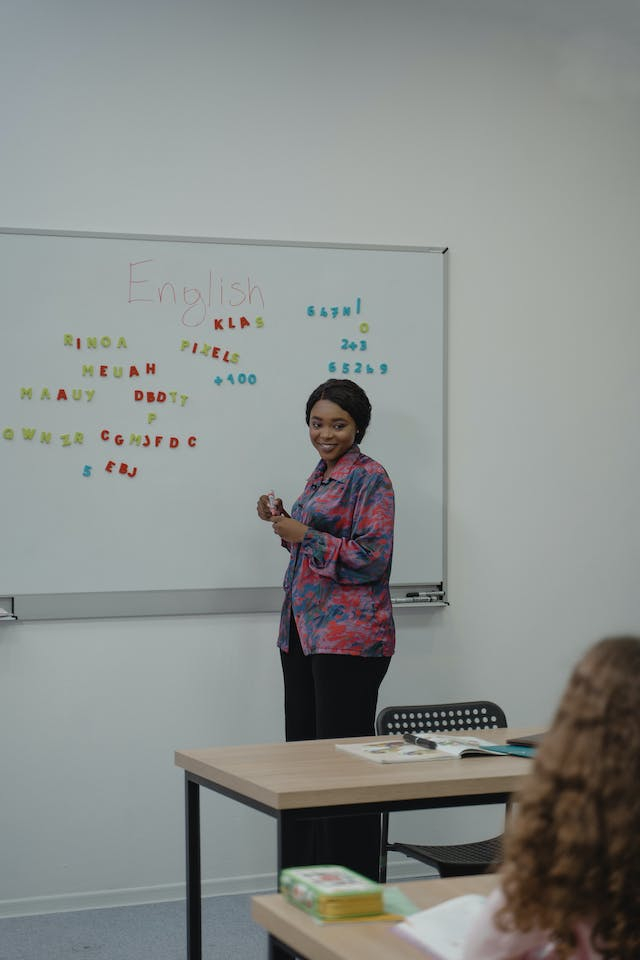Top 10 Common Questions When Applying for Special Education Advocate Jobs and Answers
Navigating the application process for Special Education Advocate Jobs requires a keen understanding of key questions. Here is a concise guide addressing ... read more...common queries when applying for such roles, along with insightful answers to help candidates prepare and showcase their expertise in advocating for students with special needs.
-
Rationale:
Individuals pursuing a career as a Special Education Advocate are often motivated by a deep commitment to supporting families and children facing diverse learning challenges. The multifaceted nature of the role, involving navigating complex legal frameworks, interpreting test results, and collaborating with schools to develop tailored education plans, requires a genuine passion for making a positive impact.
The question aims to uncover whether the individual is aware of the challenges inherent in special education advocacy and if they possess the interpersonal skills needed to build effective relationships with families, educators, and administrators. Furthermore, it seeks to explore whether the person has a specific interest in the legal and procedural aspects of special education, as indicated by the need for extensive knowledge in state and federal laws.
Motivations may also stem from personal connections or experiences, such as having a family member with special needs. A commitment to continuous learning and staying informed about evolving laws and best practices is crucial in this dynamic field. Ultimately, by delving into the motivations behind choosing this career, the question seeks to assess the individual's genuine dedication to empowering families and improving educational outcomes for students with special needs.Example answer: "I have a passion for ensuring that all students receive an education tailored to their unique needs. I believe in advocating for those who may face challenges in the education system and ensuring that they have the support necessary to thrive."

Photo by nappy via pexels 
Photo by 祝 鹤槐 via pexels -
Rationale:
In special education advocacy, IDEA serves as a cornerstone, establishing the legal framework that governs the provision of services and safeguards the rights of students with disabilities and their parents or guardians. Advocates use IDEA to ensure schools adhere to regulations, assist parents in understanding their rights, and navigate the complex process of developing and implementing IEPs.
The significance of IDEA lies in its commitment to inclusivity, tailored education plans, and parental involvement. It empowers advocates to champion the rights of students with diverse learning needs, promoting an educational environment that addresses individual requirements and fosters equal opportunities for academic success. Understanding and leveraging IDEA is fundamental for effective special education advocacy, facilitating collaboration between parents, educators and the education system to achieve optimal educational outcomes for students with disabilities.
Example answer: "IDEA is a federal law that ensures students with disabilities receive a free and appropriate public education. As a Special Education Advocate, my role would involve ensuring that schools comply with IDEA, advocating for appropriate Individualized Education Programs (IEPs), and addressing any issues that may arise in the implementation of special education services."

Photo by fauxels via pexels 
Photo by ICSA via pexels -
Rationale:
The question is pivotal in assessing the candidate's commitment to maintaining an up to date understanding of the dynamic legal landscape surrounding special education. The rationale for posing this question is deeply rooted in the multifaceted nature of the advocacy role, which demands a proactive approach to staying informed and adapting to evolving legal frameworks.
Understanding the candidate's strategies for staying abreast of changes reflects their commitment to professional development and continuous learning. The involvement with esteemed professional organizations, such as the Council of Parent Attorneys and Advocates (COPAA) and the National Disability Rights Network, demonstrates an awareness of the significance of collective knowledge-sharing platforms. This question aims to evaluate whether the candidate actively seeks out opportunities for training sessions, webinars, and updates provided by these organizations.
The candidate's participation in educational classes offered by organizations like the Federation for Children with Special Needs underscores a dedication to enhancing their knowledge base and staying informed about the latest research and classroom techniques. The emphasis on networking, attending conferences, and participating in online forums showcases an understanding of the importance of collaborative learning and the exchange of insights with peers in the field.
In essence, this question serves to evaluate not only the candidate's current knowledge but also their commitment to ongoing education, professional engagement, and a proactive stance toward staying informed. It seeks to ensure that the advocate is well-equipped to navigate the complexities of special education laws and policies, ultimately benefiting the students and families they serve.Example answer: "I regularly attend workshops, seminars, and conferences related to special education law. I also stay updated on legal developments through professional associations, online resources, and networking with other advocates. It's essential to stay informed to provide the best possible support for individuals with special needs."

Photo by fauxels via pexels 
Photo by fauxels via pexels -
Rationale:
The question is integral to assessing a candidate's practical experience, problem-solving skills, and resilience in the field of special education advocacy. The rationale for posing this question lies in the recognition that real-world challenges are inherent in advocating for students with diverse learning needs and their families.
By prompting the candidate to recount a specific challenging situation, the question seeks to uncover their ability to navigate complex scenarios, think critically, and adapt strategies to unique circumstances. Special education advocacy often involves addressing nuanced issues, and understanding how a candidate has tackled a previous challenge provides valuable insights into their approach to problem-solving.
Moreover, this question assesses the candidate's interpersonal skills, as effective advocacy often requires collaboration with parents, educators, and administrators. By delving into the resolution process, the question aims to evaluate the candidate's communication abilities, negotiation skills, and capacity to build constructive relationships in emotionally charged situations.
In essence, this question is designed to elicit a narrative that goes beyond theoretical knowledge, offering a practical understanding of the candidate's expertise. It provides an opportunity for the candidate to showcase their advocacy acumen, resilience, and commitment to ensuring the best outcomes for students with special needs.Example answer: "In a previous role, I encountered a situation where a student's needs were not being adequately addressed in their IEP. I worked closely with the school, the student's parents, and relevant professionals to gather information, mediate discussions, and ultimately ensure that the student received the appropriate services outlined in their IEP."

Photo by Max Fischer via pexels 
Photo by ThisIsEngineering via pexels -
Rationale:
The question is strategically crafted to gauge the interpersonal skills, collaborative mindset, and adaptability of the candidate in the context of special education advocacy. The rationale behind this question lies in the recognition that successful advocacy is contingent upon fostering constructive relationships among key stakeholders.
Building positive relationships with parents is crucial as it involves empathetic communication, active listening, and a deep understanding of the unique needs of each family. This question seeks to assess the candidate's ability to establish trust, provide support, and navigate emotional complexities with parents.
Effective collaboration with educators is essential for aligning advocacy efforts with the educational system. The question aims to reveal the candidate's approach to communicating with educators, understanding their perspectives, and working collaboratively to ensure the best outcomes for students with special needs.
Engaging with school administrators requires a nuanced approach, balancing advocacy goals with administrative constraints. This question delves into the candidate's strategies for articulating concerns, presenting solutions, and building a collaborative rapport with administrators to effect positive change.
In essence, this question provides insights into the candidate's communication style, adaptability, and commitment to collaborative problem-solving. It recognizes the dynamic nature of special education advocacy, where building and maintaining positive relationships is not only integral to success but also indicative of an advocate's ability to navigate the complex landscape of diverse stakeholder interests.Example answer: "Communication and collaboration are key. I believe in establishing open and transparent lines of communication with all stakeholders. By actively listening, understanding concerns, and working collaboratively, I aim to build trust and foster a supportive environment for the benefit of the student."

Photo by Arthur Krijgsman via pexels 
Photo by Max Fischer via pexels -
Rationale:
The question is purposefully designed to assess the candidate's conflict resolution skills, diplomacy, and ability to navigate sensitive situations in the realm of special education advocacy. The rationale behind this question is grounded in the recognition that conflicts can arise due to differing perspectives on a child's needs and the services required.
Special education advocacy often involves mediating between passionate parents advocating for their child's specific needs and school staff striving to balance resources and institutional constraints. Understanding how a candidate handles conflicts provides valuable insights into their communication style, emotional intelligence, and capacity to foster collaborative solutions.
The question aims to evaluate the candidate's approach to conflict resolution, including their ability to listen actively, empathize with diverse viewpoints, and facilitate constructive dialogue. Special education advocacy requires advocates to be effective mediators, ensuring that the best interests of the student remain at the forefront.
Moreover, the question assesses the candidate's commitment to finding mutually beneficial solutions. Advocates need to strike a delicate balance between advocating for the child's needs and maintaining a positive working relationship with school staff. The response to this question offers a glimpse into the candidate's strategies for de-escalating tensions, promoting open communication, and ultimately working towards resolutions that prioritize the educational well-being of the student.Example answer: "I approach conflicts by first seeking to understand each party's perspective. I facilitate open and respectful communication, emphasizing the shared goal of the child's success. I work towards finding common ground and, if necessary, use mediation techniques to resolve disputes amicably."

Photo by Max Fischer via pexels 
Photo by Max Fischer via pexels -
Rationale:
The question is crafted to assess the candidate's commitment to promoting inclusivity in the education system and their proficiency in implementing strategies that foster an inclusive environment. The rationale for posing this question lies in the recognition that inclusive education is paramount for the optimal development of students with diverse learning needs.
Advocating for inclusive practices requires a nuanced understanding of the benefits of diverse classrooms and the ability to navigate potential challenges. This question aims to reveal the candidate's strategic approach to fostering inclusivity, considering the unique needs of students with disabilities.
The response to this question allows the candidate to demonstrate their knowledge of inclusive education principles and showcase practical strategies they employ. This may include collaborating with educators to implement differentiated instruction, promoting awareness and understanding among students and staff, and advocating for the removal of barriers that hinder inclusion.
Furthermore, the question seeks to evaluate the candidate's advocacy acumen in influencing policy changes that support inclusive education. Effective advocates understand the importance of systemic change and may engage with educational institutions, policymakers, and community stakeholders to drive initiatives that enhance inclusivity.Example answer: "Inclusive education is crucial for the success of students with special needs. I advocate for inclusive practices by promoting awareness, providing training to educators, and collaborating with schools to create environments that support the diverse needs of all students."

Photo by Katerina Holmes via pexels 
Photo by August de Richelieu via pexels -
Rationale:
The question is strategically formulated to evaluate the candidate's organizational skills, time management, and capacity to handle the complexities of managing multiple advocacy cases. The rationale for posing this question stems from the understanding that special education advocates often navigate a diverse caseload, each with its unique challenges and timelines.
Effective caseload management is critical in ensuring that each advocacy case receives the attention and expertise it requires. This question seeks to assess the candidate's ability to strategically prioritize cases based on urgency, complexity, and the specific needs of the individuals involved.
The response provides insights into the candidate's approach to setting realistic timelines, allocating resources efficiently, and maintaining a balanced and equitable focus across diverse cases. Advocates need to navigate varying degrees of urgency and complexity, making effective prioritization a key competency.
In essence, this question provides a comprehensive view of the candidate's organizational and time-management skills within the context of special education advocacy. It ensures that the advocate is not only well-versed in the legal and procedural aspects but also possesses the practical skills required to navigate the intricacies of managing multiple cases simultaneously for the benefit of the students and families they serve.Example answer: "I prioritize cases based on urgency and the needs of the individuals involved. I maintain detailed records, set realistic timelines, and communicate transparently with clients about the progress of their cases. Effective time management and organizational skills are essential in handling multiple cases simultaneously."

Photo by Max Fischer via pexels 
Photo by Tima Miroshnichenko via pexels -
Rationale:
This question aims to assess the candidate's depth of knowledge and sensitivity to the varied challenges faced by students with different disabilities. Advocating for individuals with diverse needs demands a comprehensive understanding of the intricacies associated with learning, behavioral, physical, and developmental disabilities.
The response to this question provides insights into the candidate's strategies for tailoring advocacy efforts to the specific requirements of each disability type. It allows the candidate to showcase their ability to navigate the complexities of different educational plans, support services, and accommodations necessary for diverse learners.
Moreover, the question seeks to evaluate the candidate's commitment to inclusivity and their approach to ensuring that advocacy efforts are not one-size-fits-all but rather are adapted to meet the unique circumstances of each student. Successful advocates recognize the importance of personalized advocacy to address the distinctive challenges associated with various disabilities.
In essence, this question addresses the candidate's ability to embrace diversity in their advocacy approach, ensuring that they are equipped to effectively champion the rights and educational well-being of students with a wide range of disabilities.Example answer: "I recognize the uniqueness of each student's needs. My approach involves staying informed about various disabilities, collaborating with experts when needed, and tailoring advocacy strategies to address the specific challenges faced by each student. Flexibility and a personalized approach are crucial."

Photo by Tima Miroshnichenko via pexels 
Photo by Yan Krukau via pexels -
Rationale:
The question, "What do you think are the most significant challenges facing special education today, and how would you address them?" is strategically posed to assess the candidate's depth of understanding, critical thinking, and problem-solving skills regarding the contemporary issues in special education advocacy. The rationale for asking this question lies in acknowledging the evolving landscape of education and the need for advocates who can proactively identify and address the most pressing challenges.
This question prompts the candidate to demonstrate their awareness of current issues within special education, which may include issues related to inclusivity, funding disparities, evolving legislation, or the impact of technological advancements on educational practices. It provides an opportunity for the candidate to articulate a nuanced understanding of the complexities surrounding special education today.
Furthermore, the response offers insights into the candidate's ability to propose practical and effective strategies to tackle identified challenges. Successful advocates must not only recognize the issues but also possess the foresight and creativity to implement solutions that align with the best interests of students with diverse learning needs.Example answer: "One significant challenge is ensuring equitable access to quality education for all students with special needs. I would address this by advocating for policy changes, promoting awareness, and working collaboratively with schools and communities to create inclusive environments that meet the diverse needs of students."

Photo by Tima Miroshnichenko via pexels 
Photo by Katerina Holmes via pexels





























